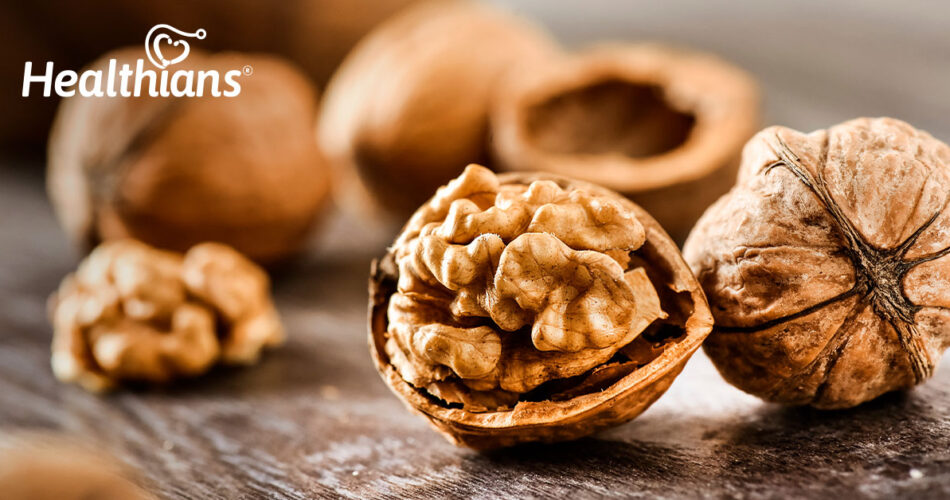Contributed by: Healthians Team
Introduction
According to the WHO, 27 percent of all deaths in India are linked to cardiovascular disease (CVD). Heart attack and stroke are the two leading causes of cardiovascular disease related deaths in India.
It is World Heart Day today and with this blog, we would like to put emphasis on making the heart healthy and strong.
Each one of us runs the danger of acquiring heart disease, whether you want to blame it on your family’s medical history or the fast-paced lifestyle that is causing issues of high cholesterol. Fortunately, a number of variables assist us in reducing our risk of cardiovascular diseases (CVD) and choosing the path to a healthy heart. Let’s discuss in detail how:
How Walnuts can help improve your heart health?
A handful of walnuts, together with a balanced, nutrient-rich diet and regular exercise, is a crucial step, according to the study. Walnuts deserve to have a place on your plate since they may help lessen your chances of developing heart disease.
These magic nuts include polyunsaturated fats, sometimes known as ‘good fats,’and ALA (alpha-linolenic acid), which may decrease blood pressure and cut cholesterol levels, two key risk factors for heart disease.
These nutritional giants are also known to aid in reducing inflammation and enhancing blood vessel health.
A new scientific study published in Advances in Nutrition also contends that a heart-healthy diet should include foods high in plant-based omega-3 ALA, such as walnuts.
The ideal amount of Walnuts to consume for heart health
It is advised to eat around 28 G, or a handful, of walnuts per day. This quantity provides the necessary 2.5g of plant-based omega-3, 4g of protein, and 2g of fibre for general health.
What is the best time of the day to eat walnuts?
Ideally, the best time to eat walnuts is in the morning.
You can soak walnuts at night and consume them on an empty stomach. If you are not a morning person you can also have them before bed at night. Walnuts include PICO melatonin, which reaches your brain and increases serotonin levels, ultimately promoting good sleep.
5 simple ways to include walnuts in your daily diet
- Mid-day snack
We all look for a healthy option to beat that mid-day hunger. Walnuts are the most fulfilling mid-day snacks that you must opt for.
You can also add flavour to them by sprinkling black pepper or chat masala.
- Walnut oatmeals
This recipe is a blend of peaches, walnuts, and rolled oats along with nutmeg, cinnamon, and brown sugar and is an extremely good alternative for breakfast on the go.
You can also add available seasonal fruits and dry fruits to make it more enriched and flavourful packed with a wide variety of nutrients like omega 3 fats, phosphorus, vitamin B6, manganese, Vitamin E and more.
- Yoghurt mixed with walnuts
Mix coarsely grounded walnuts with hung curd and turn it into a scrumptious creamy dip. You can flavour your simple curd by adding walnut to it.
- Seasoning for Poha and upma
We all love having easy-to-make and light breakfast dishes. Upma and poha are one of the most preferred breakfast dishes because they keep you full of energy and provide you with essential nutrients when mixed with walnuts.
- Apple walnut dessert
This delicious dessert loaded with apples, walnuts and almond milk with honey is an amazing way to add walnuts to your diet.
This healthy recipe will keep your energy levels high for hours. Sprinkling chopped walnuts on top of this dish gives a more crunchy and nutty flavour to it.
Final thoughts
These nuts are more antioxidant-rich than most other foods and are high in omega-3 fats. Consuming walnuts may enhance brain health and shield against cancer and heart disease.
Walnuts may be added to salads, smoothies, morning cereals, desserts, and baked products in addition to being consumed on their own as a snack.
Many times, adopting healthy lifestyle practices like eating nuts can lower your chances of developing heart disease.
Walnuts are proven to be the magic nuts.
In fact, several studies demonstrate that consuming walnuts can reduce the risk of heart disease by cutting back on LDL (bad) cholesterol, reducing inflammation, increasing blood vessel function, and reducing the chance of artery plaque development.
Simply put, consuming walnuts can be one of the most useful things you can do to improve your heart health.
As genetic testing is helpful in predicting several hereditary diseases and heart diseases, you can opt for genetic testing to get predictive insight on the potential heart disease risks.




